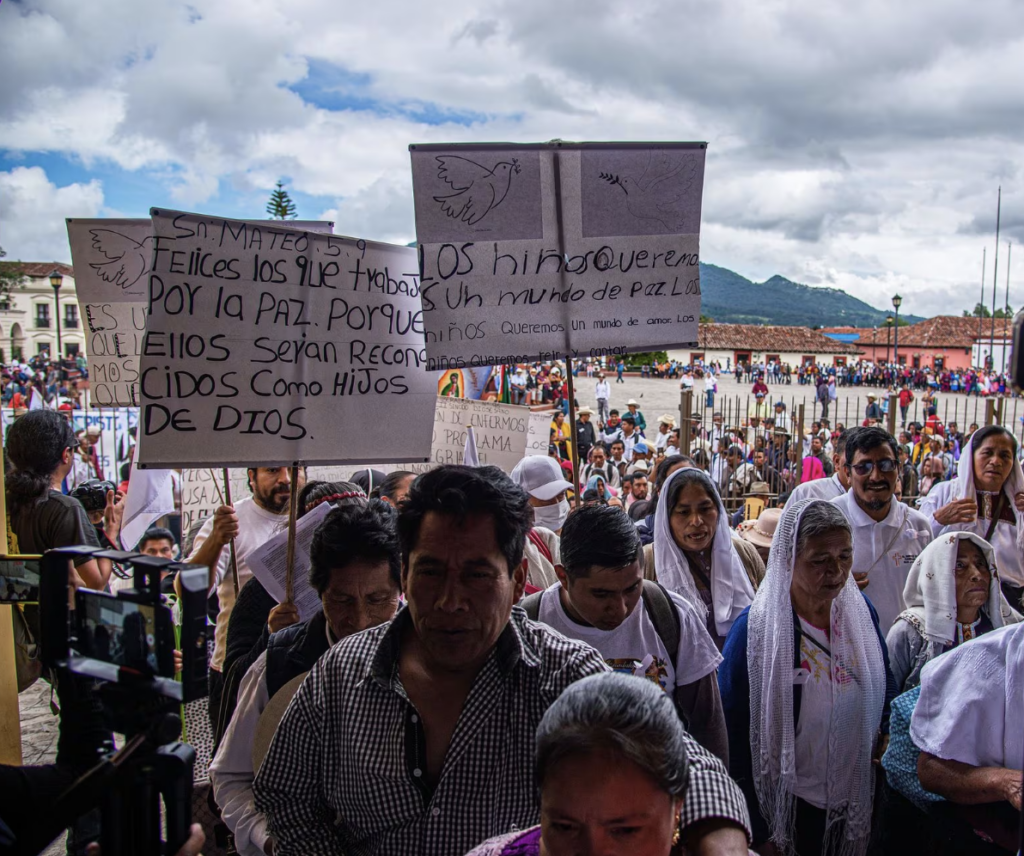
04/15/14 (written by apiña) — Michoacán’s Security Commissioner Alfredo Castillo Cervantes, alongside Mexico’s Interior Minister Miguel Ángel Osorio Chong, announced on April 4 that self-defense groups (grupos de autodefensas) have agreed to disarm by May 10, 2014. The communication comes after the eight-point pact in late January solidifying an agreement between the federal government and self-defense groups in Michoacán in which the groups would be absorbed into the state security apparatus as part of the “Rural Defense Corps” under the military’s command. The recent announcement in early April, however, has now identified a deadline for the groups’ institutionalized incorporation, stating that all groups must either disarm or officially join the Rural Defense Corps by May 10. Authorities have been instructed to arrest civilians found in possession of a firearm beginning on May 11.
Castillo Cervantes’ recent announcement was made just three months after Osorio Chong and Michoacán Governor Fausto Vallejo agreed that federal forces (fuerzas federales) would take over and manage 27 municipalities within the Tierra Caliente area dominated by the Knights Templar Organization (Caballeros Templarios, KTO). Castillo Cervantes said that, despite the January agreement between the Michoacán Autodefensas Council (Consejo de Autodefensas de Michoacán, CAM) and Interior Minister Osorio Chong, the growing presence of the self-defense groups has presented a security challenge for the Mexican government, making it necessary to negotiate a furthered agreement with the groups to disarm. As the Los Angeles Times reports, both Castillo Cervantes and Osorio Chong emphasized that the groups interested in continuing to help would be able to do so by incorporating them into the Rural Defense Corps as village guards or unified state police command.
The recent developments come after multiple sources, including El Universal, reported that the Peña Nieto administration had pressured the self-defense groups earlier this month to lay down their weapons and join federal efforts, which led to staged protests against the administration’s efforts in over ten Michoacán municipalities. Self-defense groups first emerged in the state in February 2013, and began to quickly expand their operations to more than 29 of Michoacán’s 113 municipalities. Their growing presence has challenged the government’s authority in many of the towns as groups took charge of public security operations, which included the detention of local law enforcement authorities suspected of having ties to the KTO. While the collaborative efforts between the self-defense groups and official forces resulted in the death and capture of three of the KTO’s four top leaders in the first three months of 2014, Castillo Cervantes and Osorio Chong clarified that the agreed upon disarmament is being enforced now that government forces have gained an upper hand in capturing those associated with the KTO.
In the months following the January 27 pact, however, a number of events have caused slight rifts in the relationship between the two sides, including the March arrest of Hipólito Mora Chávez, the leader of the self-defense groups in La Ruana, Michoacán. Yet after months of dialogue between Commissioner Castillo Cervantes and community groups’ leaders, the council spokesman for the groups, José Manuel Mireles, spoke on the negotiations to continue the move towards disarmament. As reported in El Universal, Mireles stated that “the full cleaning process [of the state of Michoacán] involves both working in full with federal forces in cities like Morelia, Zamora, Uruapan and Lázaro Cárdenas, and taking down all remaining Knights Templar members, including leaders and mid-level managers.” He also reported that as part of the self-defense groups’ agreement to disarm by May 10, the federal government offered to release the nearly 100 arrested self-defense group members. “If [the government] fulfills their side [of the agreement] early,” stated Mireles, “then we’ll turn [our weapons] in early, too.”
Sources:
“March 2014 News Monitor.” Justice in Mexico. March 2014.
Martínez, Dalia. “Próximo, desarme de autodefensas: Castillo.” El Universal. April 4, 2014.
Díaz, Daniel. “Aplude PRD Michoacán desarme de autodefensas.” La Jornada Michoacán. April 15, 2014.




